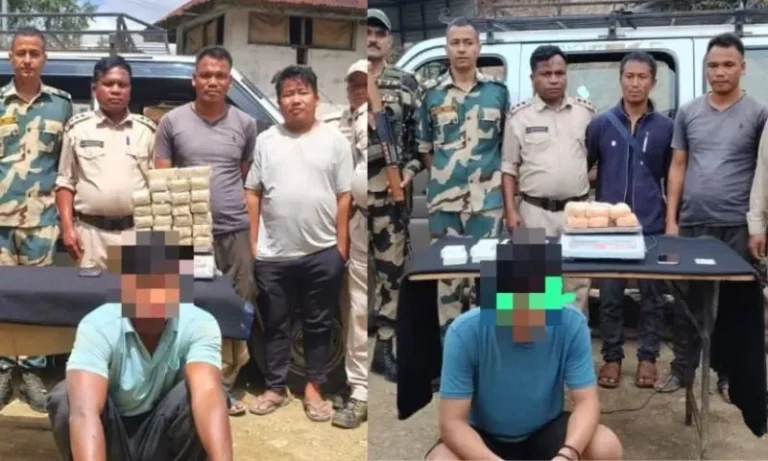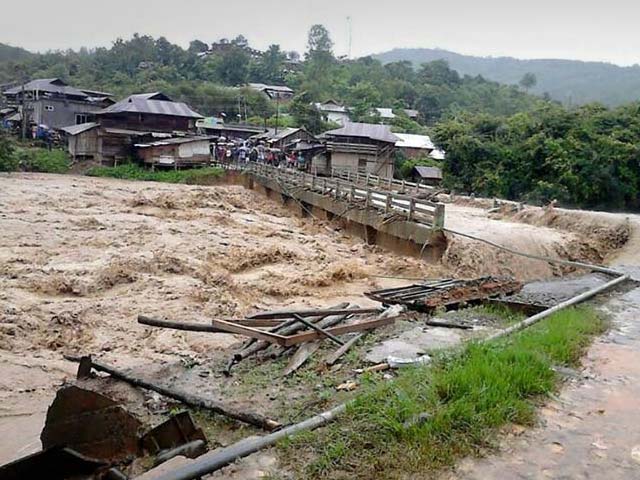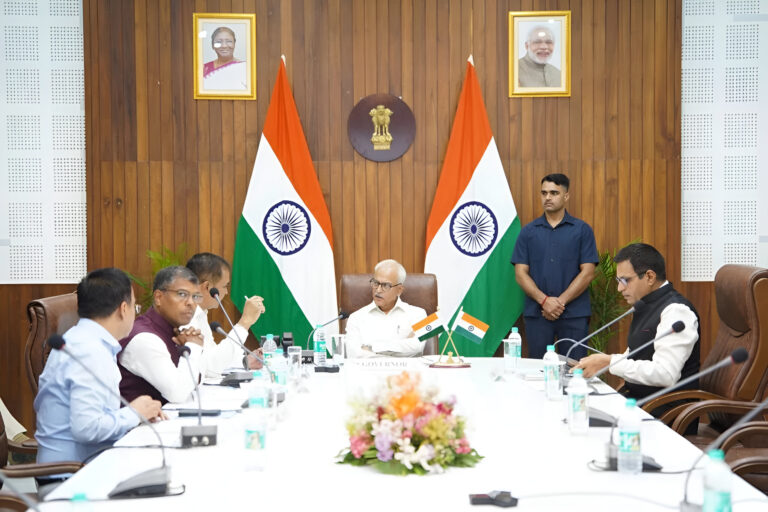Economic Downturn in Manipur: A Crisis Unveiled by Budget Cuts
Summary of the Article
The Manipur Congress has raised concerns over a significant budget reduction, citing it as evidence of economic distress. This decrease, reportedly the first in four decades, has heavily impacted local projects and funds for infrastructure, internally displaced persons (IDPs), and essential services. Congress president Meghachandra seeks special financial aid from the Finance Commission to address these challenges, highlighting the pressing need for reforms in local governance and economic support amid ongoing violence.
Full-Length Article
Introduction: A Budget Cut That’s More Than Numbers
Budget reductions in Manipur’s latest fiscal year have caused a stir. But this isn’t just about financial figures; it’s a matter that speaks volumes about the state’s economic well-being—or the lack of it. According to Manipur Congress leaders, this cut signifies deeper economic issues tied to both local conflicts and governance shortfalls. When budget cuts come after forty years of growth, it sends a clear message: something’s off, and it’s affecting the daily lives of the people of Manipur.
What does this budget cut mean for Manipur? And what are the solutions Congress is proposing to address this financial strain? Let’s delve into these questions.
Why a Budget Reduction? The Economic Context in Manipur
For any government, a shrinking budget is like pulling back on resources in times of need. The Congress claims that ongoing violence in Manipur has exacerbated the situation, driving a need for more, not fewer, funds. With internal conflicts displacing thousands and disrupting economic stability, the state requires robust support to recover.
Manipur’s diverse socio-economic landscape means that when the economy takes a hit, marginalized groups are often the first to feel the impact. Budget cuts reduce funding for local development, infrastructure, and social welfare, all of which play a crucial role in supporting vulnerable communities.
Congress’s Appeal to the Finance Commission: A Call for Aid
At the heart of Congress’s response to the budget cut is a request to the Finance Commission for a special aid package. This isn’t just about restoring funds; it’s about adapting the budget to meet Manipur’s unique challenges. Meghachandra, the Manipur Pradesh Congress Committee (MPCC) president, emphasized this need during a recent press conference.
In a memorandum submitted to the 16th Finance Commission, Congress highlighted key areas where financial aid could make an immediate difference, such as rebuilding infrastructure, supporting internally displaced persons (IDPs), and promoting economic initiatives that would stimulate growth.
Supporting the Internally Displaced: The Need for Rehabilitation
Manipur has a significant number of internally displaced persons, many of whom have lost their homes and livelihoods due to recent conflicts. The Congress memorandum included a request for special funding to rehabilitate these individuals, estimated at around 60,000 people. This assistance is crucial for helping IDPs rebuild their lives and reintegrate into the community.
With decreased state funds, IDP programs are at risk of falling short, underscoring the need for external support. These funds would not only help IDPs regain stability but also contribute to restoring social harmony in a state where ethnic tensions run deep.
Investment in Infrastructure: A Path to Economic Revival
Another major focus for Congress is infrastructure development. When a state’s roads, schools, and hospitals are underfunded, it impacts more than just economic growth; it affects quality of life. For instance, the memorandum requested investments in highways and transport routes connecting Manipur to other northeastern states and neighboring countries. Improved connectivity can attract business opportunities, reduce transportation costs, and provide locals with better access to essential services.
Additionally, Congress proposed a review of the 2014 Paddy Land and Wetland Act, which restricts land use, thus limiting economic diversification. By revisiting this law, Manipur could explore other agricultural or economic uses for these lands, boosting income and employment.
The Role of Local Governance: An Unaddressed Crisis
Local governance bodies in Manipur, such as Panchayati Raj Institutions and Urban Local Bodies, have been without elected representatives for years. These bodies, responsible for implementing development projects, are essential to the state’s progress. The absence of elected officials has led to fund stagnation, as grants intended for local projects remain unused.
For example, rural development projects that rely on Panchayati Raj bodies have stalled, impacting hundreds of villages. Congress criticized the government for not holding timely elections and for allowing temporary committees to take over, which they argue undermines constitutional principles.
Impact on Public Services and Infrastructure Development
One of the most visible impacts of the budget cut is the strain on public services. Schools, hospitals, and social services, which rely heavily on state funding, are now facing financial constraints. Congress has pointed out that these cuts, combined with inflation, have made everyday life harder for citizens. Manipur’s inflation rate is among the highest in the country, increasing the cost of living and reducing purchasing power.
The Congress also highlighted the importance of strengthening local economies by empowering village councils and urban bodies, which can make more localized decisions that benefit the community directly. According to Congress, these bodies are underfunded and restricted from fulfilling their role in supporting Manipur’s economic recovery.
Congress’s Plan for Economic Recovery: The Path Forward
The Congress’s memorandum to the Finance Commission outlines a comprehensive economic recovery plan that prioritizes infrastructure, IDP support, and local governance. But their plan goes beyond immediate financial needs. By suggesting legal changes, such as relaxing restrictions on land use, and increasing connectivity, Congress envisions an economy that can stand resilient in the face of challenges.
Meghachandra emphasized that the state’s long-term stability depends on strategic investments and governance reforms. He urged the Finance Commission to consider these proposals not as temporary fixes but as building blocks for Manipur’s future resilience.
Conclusion: Balancing Budget Cuts with Economic Needs
The decrease in Manipur’s state budget has opened up broader conversations about financial management, local governance, and economic recovery. Congress’s response to this budget crisis reveals the complexities of managing a state with unique socio-political challenges. The call for a special aid package is not just about immediate relief; it’s a plea for sustainable development and a functional governance structure.
If the Finance Commission responds favorably, Manipur could see a revival in public services, infrastructure, and local economy. However, without timely intervention, the budget cuts may push Manipur further into economic hardship, affecting its most vulnerable citizens.
FAQs
- Why is Manipur facing a budget reduction?
The budget cut is reportedly due to economic strains worsened by ongoing violence, which has impacted revenue and the state’s ability to fund projects. - How are the budget cuts affecting daily life in Manipur?
With fewer funds, essential services, local governance projects, and public infrastructure developments are facing delays or shortages, directly impacting residents. - What is Congress requesting from the Finance Commission?
Congress has asked for special financial aid to support Manipur’s economy, including funds for infrastructure, IDPs, and local governance. - Why is infrastructure a priority in Congress’s plan?
Infrastructure investments improve connectivity and economic opportunities, enabling growth and easier access to resources for Manipur’s citizens. - How does local governance impact economic recovery?
Local governance bodies play a crucial role in implementing development projects and using funds effectively for community growth, but they need adequate resources to function.





